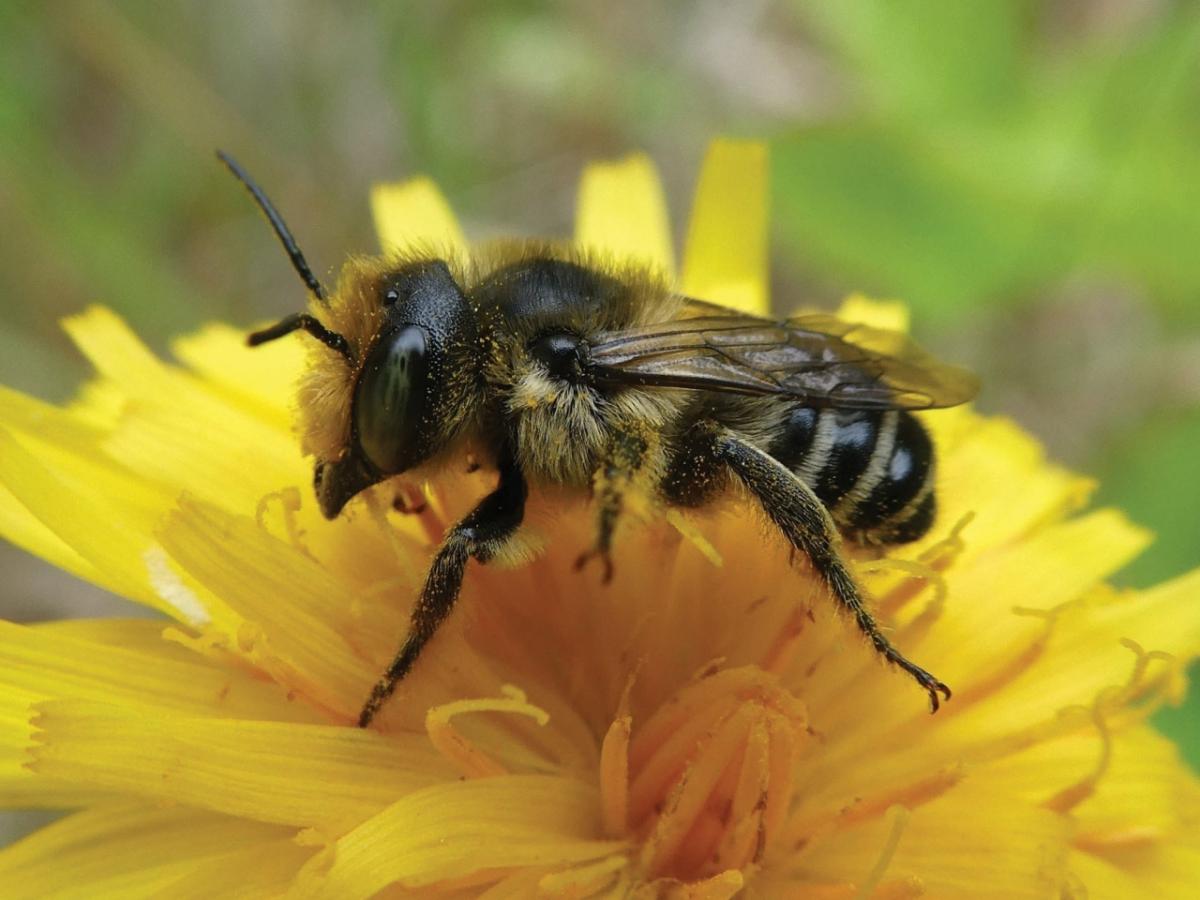The Buzz on Why PSE&G Studies Bees
By Lauren Ugorji - Lead Writer, PSE&G

More than 75% of plants on earth require the help of a pollinator, such as a bee, butterfly or bat, to reproduce. Some experts estimate that these pollinators are responsible for one in every three bites of food humans eat. Unfortunately, many pollinators, especially bees, are in decline, which is threatening food production and other critical human needs.
PSE&G wants to help increase the bee population in New Jersey and fight back against this critical pollinator’s decline. Since 2016, PSE&G has been creating habitats on its rights of way by planting custom seed mixes for bees, butterflies and other wildlife – primarily in underdeveloped areas.
But bees also are found in highly developed places.
“We want to understand the value of our rights of way to bees, especially since many are the only natural areas remaining amid development,” said David Grossmueller, PSE&G’s senior permitting specialist, who holds a doctorate in zoology.
During the past year, entomologists have been conducting a bee survey on the section of the Metuchen-Sewaren ROW that runs through the highly developed landscape between Metuchen Switch and Woodbridge Center Mall, where the ROW parallels U.S. Route 1. The survey, which concluded at the end of May, used colored “bee bowls” filled with soapy water to attract bees for data collection on their species, abundance and composition.
The study is led by Grossmueller and David Moskowitz, senior vice president of EcolSciences, who has a doctorate in entomology. EcolSciences is a PSE&G environmental consultant.
“While the study is ongoing, it is evident that the bee fauna is very diverse, especially given all the malls, houses, parking lots, roads and commercial developments around the ROW,” Moskowitz said. “It is hoped, after completing the study, that the value of the ROW for bees will be better understood and perhaps lead to management strategies to encourage our troubled pollinators.”
The study is expected to conclude in late fall, at which point Grossmueller and Moskowitz will make recommendations on vegetation management options to increase the value of the ROW for bees and other pollinators.

